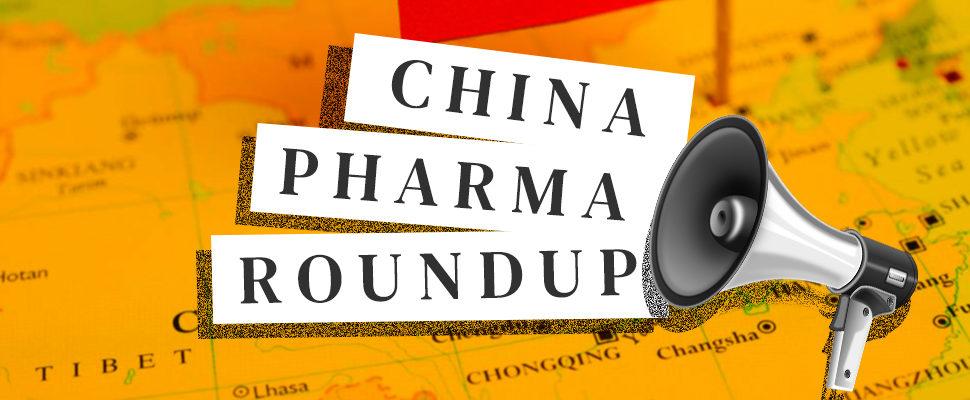The latest news from Chinese pharma, including a new report showing that despite the increasing number of Priority Review and Breakthrough Therapy designations awarded within China, only two Accelerated Approval designations have been awarded since 2015. Elsewhere, Pfizer is utilising drone technology to promote health education in remote areas and COVID-19 vaccine firm Clover Biopharmaceuticals saw its shares fall by 8.7 percent after its trading debut on the Hong Kong Stock Exchange.
Accelerated approval designations decelerate compared to other designations in China (Pharmaceutical Technology)
https://www.pharmaceutical-technology.com/comment/accelerated-approval-designations-china/
In September, three drugs were awarded Priority Review and three drugs were given Breakthrough Therapy designation by China’s National Medical Products Administration (NMPA). These six drugs included Amgen’s bemarituzumab, a Phase III monoclonal antibody that is indicated for gastroesophageal (GE) junction carcinomas. But despite the increasing number of Priority Review and Breakthrough Therapy designations awarded within China, only two Accelerated Approval designations have been awarded since 2015.
Pfizer drones light up night sky in China’s remote area with health tips (Fierce Pharma)
At 7:30 p.m. local time Sept. 23, 1,000 drones ascended into the vast clear night sky above the Baimiao Village in the Chinese city of Xichang. They had a special delivery to make—health tips from Pfizer.
Pfizer recently put on a drone light show in the remote mountain area of southwestern China, where people of the Yi ethnic group, also known as Nuosu, live. For about 20 minutes, the light-bearing vehicles formed different shapes in the sky to relay six basic medical messages. Paired with broadcast commentaries in both Mandarin and Nuosu, the images tried to educate local residents about the importance of maternity testing, childhood vaccination, washing hands, restraint in alcohol use, wearing a mask and a balanced diet.
Chinese COVID-19 vaccine firm Clover falls on trading debut (Reuters)
BEIJING, Nov 5 (Reuters) – Shares of Chinese COVID-19 vaccine developer Clover Biopharmaceuticals Ltd (2197.HK) fell as much as 8.7% on its Hong Kong trading debut on Friday after raising a net $240 million in its initial public offering (IPO).
The loss-making firm has no product on sale yet, but has several drugs and vaccines in the pipeline including a COVID-19 vaccine candidate which showed a 67% efficacy against the disease and 79% efficacy against the Delta variant in a large, late-stage global trial.
What Can We Learn From The Pharma Manufacturers Leaving China? (Forbes)
The Covid-19 pandemic has forced a moment of reckoning within the global pharmaceutical industry. At the height of the pandemic, when the need for drugs, testing materials and basic medical supplies was greater than at any time in generations, the industry couldn’t satisfy demand. Widespread shortages at the worst time possible exposed the pharmaceutical supply chain as less resilient than anyone expected. In response, industry leaders and health officials are beginning to question some of the basic assumptions that have guided pharmaceuticals manufacturing for decades.
The dawn of China biopharma innovation (McKinsey)
China’s biopharmaceutical ecosystem is experiencing a momentous shift from a formerly generics-focused play into one that nurtures innovation, with profound implications for patients and industry peers. In this article, we take the pulse of China’s vibrant innovation ecosystem, look at the key trends driving the biopharma industry, and share thoughts on how multinational pharmaceutical players can tap into innovation opportunities in the world’s second-largest healthcare market.
How China turned the tables on biopharma’s global dealmaking (Endpoints)
https://endpts.com/how-china-turned-the-table-on-biopharmas-global-dealmaking/
Fenlai Tan still gets chills thinking about the darkest day of his life.
Three out of eight lung cancer patients who received a tyrosine kinase inhibitor developed by his company, Betta Pharma, died in the span of a month. Tan, the chief medical officer, was summoned to Peking Union Medical College Hospital, where the head of the clinical trial department told him that the trial investigators would be conducting an autopsy to see if the patients had died of the disease — they were all very sick by the time they enrolled — or of interstitial lung disease, a deadly side effect tied to the TKI class that’s been reported in Japan.


